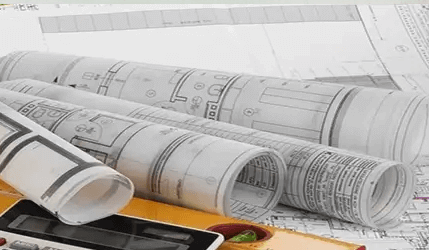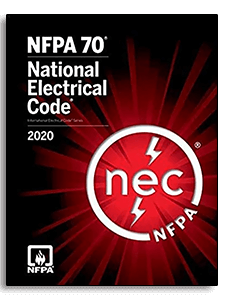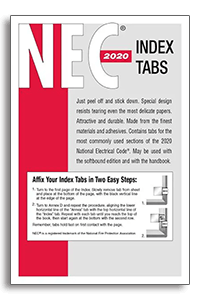Pass Your Maine Electrician License Exam!

Need to pass your Maine Master Electrician, Journeyman Electrician, or Limited Electrician House Wiring Exam, order this course!
Licenses issued by examination.
Choose your option below to get started immediately on our self-paced online classroom.
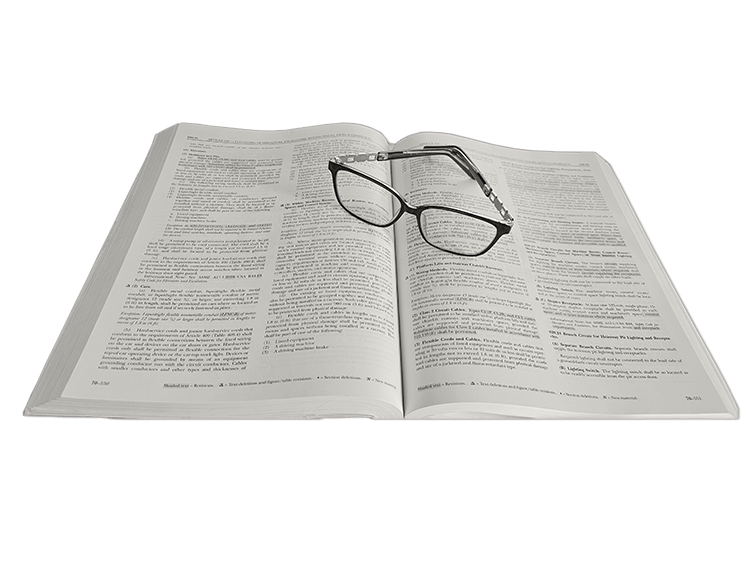
One-year online access unless you pass sooner: Accessible from any device with internet access!
Our guided self-study schedule contains the following:
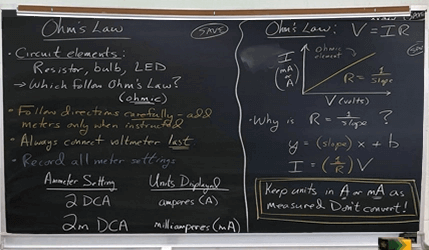 Electrical Theory – eCourses
Electrical Theory – eCourses
Includes
- Basic Electrical Theory
- Basic DC Theory
- Basic AC Theory
- Ohms Law
- Test Equipment
- Electrical Theory Chapter Questions
Blueprint Reading – eCourses
Includes
- Label Systems & Schematic Reading
- Construction Drawing Tutorial
- Blueprint Reading Chapter Questions
Navigating the 2020 NEC – eManual
Our “Navigating the 2020 NEC” eManual helps students learn to navigate the National Electrical Code (NEC).
When you master the code, you master your Exam!
This eManual is the heart of the training program. It will familiarize you with the use, layout, and content of the 2020 NEC.
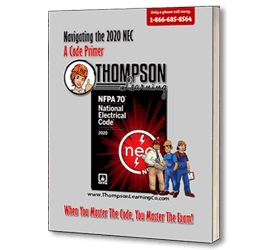 eManual includes:
eManual includes:
- How to navigate the 2020 NEC
- Understanding of the terms, concepts, and layout of the NEC.
- Speed drills
- Code navigation exercises.
- Code skimming exercises
- Breaking down questions by subject:
- Keyword Identification: how to identify the subject of a question for easy reference.
- How to search for a code article by referencing the INDEX.
- Code reference example questions with in-depth solutions.
Study Questions & Simulated Final Exams
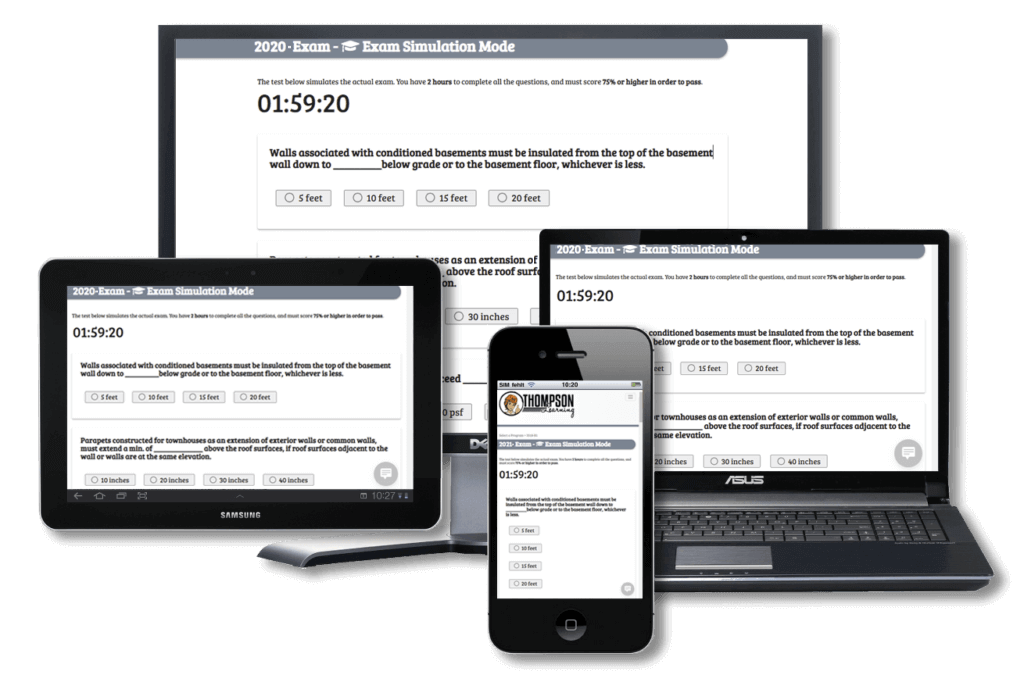
- GUIDED CHAPTER QUESTIONS This covers all Maine Master Electrician, Journeyman Electrician, or Limited Electrician House Wiring exam questions and answers within our course. (Organized as Question – Answer – Code Location.) These questions exist to provide a framework for you to practice locating the answers to questions through the use of your NEC Codebook. The process of constantly utilizing the code to answer practice questions will build up your speed and code knowledge to pass your electrical exam successfully.
Questions also include the following topics:
-
- Electrical Theory Questions
- Blueprint Reading Questions
- Calculation Questions (Load Calculations, Conduit Fill, etc.)
- ONLINE FLASHCARDS: Virtual Flashcards provide individual randomized questions. This provides access to our entire question set and is an ideal setting to practice answering randomized exam questions. (Organized as Question – Answer – Code Location).
- SIMULATED FINAL EXAM: Final exams simulate the experience of taking your actual Master Electrician, Journeyman Electrician, or Limited Electrician House Wiring License exam.
Simulated Finals Are:
-
- Full length (Same number of questions as the exam)
- Timed (Same amount of time allowed as the exam)
- Randomized (Questions are assigned randomly; all exams are unique.)
- Properly Balanced (All questions are balanced according to the Candidate Information Bulletin to guarantee a realistic exam simulation)
Take as Many Timed Final Exams as You Want! (Practice final exams help you rapidly gain confidence and knowledge to pass your Master Electrician, Journeyman Electrician, or Limited Electrician House Wiring License exam effortlessly.)
THIS PROGRAM REQUIRES YOU TO HAVE A COPY OF THE 2020 (NEC) NATIONAL ELECTRIC CODE. IF YOU DO NOT OWN A COPY OF THE CODEBOOK, YOU MAY PURCHASE ONE BELOW.

Please get in touch with the State of Maine Professional and Financial Regulation Board for current information. Licensing requirements change and our site may not have been updated to reflect those changes.
QUESTION: Who is required to have a Maine Electrician license?
ANSWER: The Maine Professional and Financial Regulation Board must license any individual who is engaged in the electrical contracting business or is performing work as a Master, Journeyman or Limited Electrician.
QUESTION: What are the qualifications required for taking the Maine Electrician exam?
Master Electrician: In order to obtain a license under this subsection, a person must first pass an examination approved by the board and provide evidence of having:
- Worked at least 12,000 hours in the field of electrical installations as a licensed helper electrician or apprentice electrician under the direct supervision of a master electrician, journeyman electrician or limited electrician, or worked at least 4,000 hours in the field of electrical installations as a journeyman electrician under the indirect supervision of a master electrician or limited electrician or worked at least 6,000 hours in the field of electrical installations as a journeyman-in-training electrician and have completed a program of study consisting of 576 hours as approved by the board or from an accredited institution. The 576 hours must consist of 450 hours of required study, including a course of 45 hours in the current National Electrical Code and 126 hours of degree-related courses;
- OR: Comparable work experience or education or training, or a combination of work experience, education, and training, completed within the State or outside the State, that is acceptable to the board.
Journeyman Electrician: In order to obtain a license under this subsection, a person must first pass an examination approved by the board and provide evidence of having:
- Worked at least 8,000 hours in the field of electrical installations as a licensed helper electrician or apprentice electrician under the direct supervision of a master electrician, journeyman electrician or limited electrician or having at least 8,000 hours of work experience in electrical installations, and having completed a program of study consisting of 576 hours as approved by the board or from an accredited institution. The 576 hours must consist of 225 hours of required study, including an approved course of 45 hours in the current National Electrical Code, and 351 hours of elective study that is either composed of all trade-related electives or 225 hours of trade-related courses and 135 hours of degree-related courses. A graduate of a secondary school career and technical education electrical program approved pursuant to Title 20‑A, section 8306‑B is credited 1,000 hours of work experience in electrical installations and is qualified to sit for the examination. The 1,000 hours credited under this subparagraph may not be applied to any other pathway to licensure described in this subsection;
- Graduated from an accredited community college electrical program or a vocationalelectrical program of a state department of corrections and having worked at least 8,000 hours in the field of electrical installations as a licensed helper electrician, under the direct supervision of a master electrician, journeyman electrician or limited electrician, and having completed a course of 45 hours in the current National Electrical Code. Graduates of a community college electrical program or a vocational-electrical program of a state department of corrections are credited 4,000 hours of work experience in electrical installations and are qualified to sit for the examination;
- Worked at least 8,000 hours as a licensed apprentice electrician in the field of electrical installations under the direct supervision of a master electrician, journeyman electrician or limited electrician, having completed a program of study comprising at least 576 hours prescribed in an apprenticeship program approved by the board and having completed a course of 45 hours in the current National Electrical Code. A licensed apprentice who has completed an approved apprenticeship program of study and has worked at least 4,000 hours as a licensed apprentice electrician is qualified to sit for the examination;
- OR: Comparable work experience or education or training, or a combination of work experience, education, and training, completed within the State or outside the State, that is acceptable to the board
Limited Electrician House Wiring:
- A limited electrician in house wiring must provide evidence of having completed at least 225 hours of electrical education as approved by the board or from an accredited institution and provide evidence of 4,000 hours of work experience approved by the board in rules. A limited electrician in house wiring is restricted to performing electrical work in one-family dwellings and 2-family dwellings, including manufactured homes.
QUESTION: Is there reciprocity in Maine for the electrician exams?
- JOURNEYMAN ELECTRICIAN: New Hampshire, Vermont, North Dakota, Idaho, Oregon, Wyoming
- MASTER ELECTRICIAN: New Hampshire & Vermont
- https://www.maine.gov/pfr/professionallicensing/sites/maine.gov.pfr.professionallicensing/files/inline-files/MS-JY-Reciprocity-Application.pdf
QUESTION: How do I sign up for the Maine Electrician exam?
ANSWER: Candidates must submit an examination application to the Electricians’ Examining Board and receive board approval. Upon approval:
To schedule online, navigate to the following URL: https://www.provexam.com/schedule
- Follow the on-screen fields to enter your Known Candidate ID and your Last Name. The Candidate ID will be your Maine License ID. Please enter all of the numbers.
To schedule for an examination by phone, candidates should contact Prov toll free at 801-733-4455. Prov scheduling staff is available 8:00 a.m. through 6:00 p.m. ET, Monday through Friday.
QUESTION: Are there any accommodations for the Maine Electrician exams?
ANSWER: Prov complies with the Americans with Disabilities Act (ADA) in providing special accommodations for candidates that require additional assistance during the testing process. If candidates feel that they qualify for a special accommodation during testing, they should contact Prov at (801) 733-4455. Prov will require written documentation from a licensed physician or psychologist documenting the disability and further require a request describing the requested remedy. Prov will then work directly with the candidates to make the accommodations they will need in order to complete their examination.
QUESTION: How many questions and how long are the Maine Electrician licensing exams?
ANSWER: The Master Electrician exam consists of 100 multiple-choice questions. Test takers have 4 hours to complete the exam. The exam is open-book with authorized materials and computer-based.
The Journeyman Electrician exam consists of 80 multiple-choice questions. Test takers have 3 hours to complete the exam. The exam is open-book with authorized materials and computer-based.
The Limited Electrician House Wiring exam consists of 50 multiple-choice questions. Test takers have 3 hours to complete the exam. The exam is open-book with authorized materials and computer-based.
The following codebooks are allowed by the testing center.
- The NFPA 70 – National Electrical Code, 2020 Edition.
QUESTION: What can I bring into the Prov testing center?
ANSWER:
- Approved references
- Prescription eyeglasses
- Pencils
- Calculator. Only simple 4-function calculators are permitted. PDAs, tablets, cell phones, or other special calculators are NOT permitted.
QUESTION: Where do I go to take my Maine Electrician license exams?
ANSWER: You may take your examination at any of Prov’s testing facilities nationwide. Within Maine, Prov has five (5) testing centers where candidates can take their examinations. These testing centers are located in Auburn, Bangor, Calais, Portland, and Presque Isle.
QUESTION: Will PROV review my results if I fail?
ANSWER: Candidates may request a review of their exam after failing an exam category two (2) times. To be eligible for a review, candidates must score within 10% of the required 70% or 75% passing score. The review for all tests is 1-1/2 hours in length. During the review candidates will be provided a printout of the questions they missed and the answers chosen in response to those questions. The review will be conducted under the same testing conditions as the exam using the same test security rules.
- The cost of the review is the same as the cost of the exam. Candidates will request or schedule a review using the same methods described earlier for scheduling.
QUESTION: Why should someone study this course if the Maine Electrician license exam is an open-book test?
ANSWER: The electrical licensing exam is a very challenging test and usually requires a month or more of preparation to pass.
The 2020 NEC is a large and complex publication containing over 800 pages of code. It is challenging to locate each correct article and answer in the time allowed during the exam without thorough preparation.
Our course is designed to familiarize you with the 2020 NEC. You will know precisely how to find the correct answers in the code when you take your exam.
We prepare you to successfully pass your exam by providing extensive knowledge of the structure of the code and by thoroughly covering each subject appearing on your Maine Electrical License Exam.
QUESTION: Why is a copy of the 2020 NEC required by this course?
ANSWER: The Maine Master/Journeyman/Limited Electrician House Wiring Electrical License Exam is based on the 2020 NEC. This course is an excellent study companion to the Code. This course makes frequent references to code sections and guides you through the exam topics.
The Electrical Licensing Exam is an open-book code exam. To pass, you must continuously reference the 2020 National Electrical Code.

General Information Links:
- Maine Electricians Examining Board Website
- Electrical Licensing – Candidate Information Bulletin:
Exam Scheduling – Exam Content – Testing Center Locations - Electrician Licensee Search Tool:
Check Electrician Certification Status
Electrician Applications:

The Maine Electrician exams are selected randomly from a database of thousands of potential questions. Memorizing answers is not the path to passing your exam!
If you understand how to locate exam answers in your 2020 NEC codebook, you should be able to answer 100% of these practice questions correctly within 60 minutes.
We teach you how to navigate your codebook & pass your exam. “Master The Code, Master The Exam!“
Maine Master Electrician Exam
or
Maine Journeyman Electrician Exam
or
